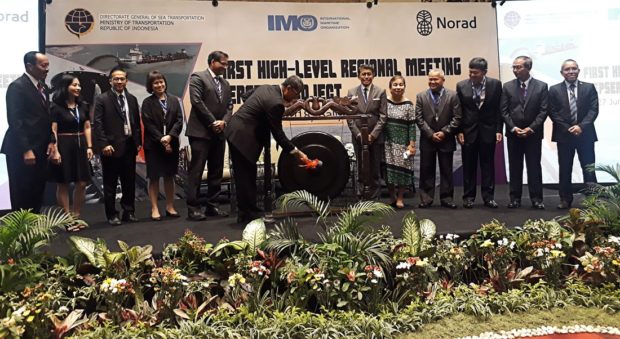
The Transportation Ministry’s sea transportation director general, Agus H. Purnomo, opens the first high-level regional meeting of the Marine Environmental Protection of the Southeast Asian Seas Project (MEPSEAS Project) in Seminyak, Bali, on June 25. (JP/Ni Komang Erviani)
SEMINYAK, Indonesia — Delegates from Southeast Asian countries are sharing their experiences in implementing marine environment protection conventions set by the International Maritime Organization (IMO) in a three-day high level meeting in Bali.
The first high-level regional meeting of the Marine Environmental Protection of the Southeast Asian Seas Project (MEPSEAS Project), an IMO program that aims to increase protection of the marine environment in Southeast Asia, was opened in Seminyak on Monday.
“I noted the objective of this project is to initiate legislation, policies and institutional arrangement processes to promote the accession and implementation of high priority marine environment conventions,” the Transportation Ministry’s sea transportation director general, Agus H. Purnomo, said in the opening ceremony on Monday.
“For Indonesia, it aims to figure out how to start effectively implementing the conventions. Hopefully, from the support of this project, we can achieve the goals.”
The IMO has developed many instruments to ensure that international shipping remains safe, secure and environmentally sound. Measures specifically focused on marine environment protection are MARPOL, the anti-fouling systems (AFS), ballast water management (BWM) and the London Convention/Protocol.
Agus explained that the meeting was very important because the marine environment was being damaged by global sea trade activities.
“Most global trade activities are conducted through sea and 40 percent of them pass through waters of the Southeast Asian region. Our marine environment is at risk of being damaged by the activities. Moreover, with the estimation that in 2030, global trade will double, the risk is increasing,” he said.